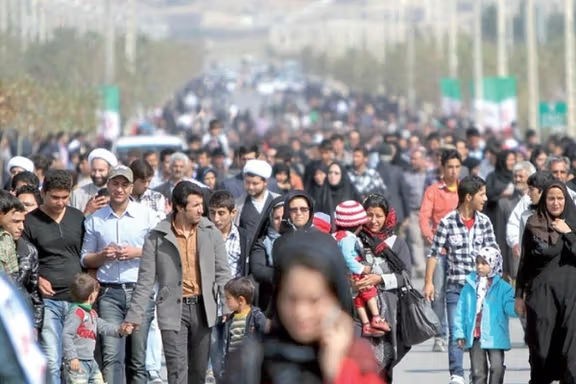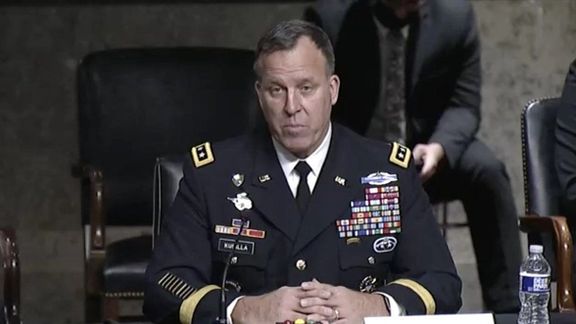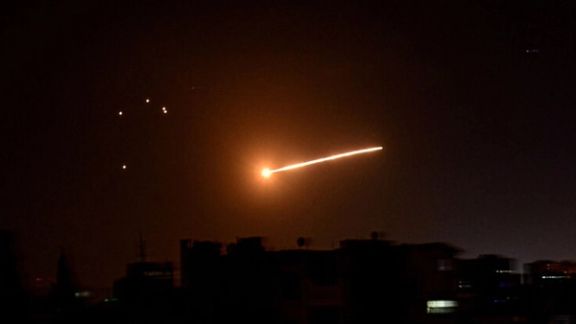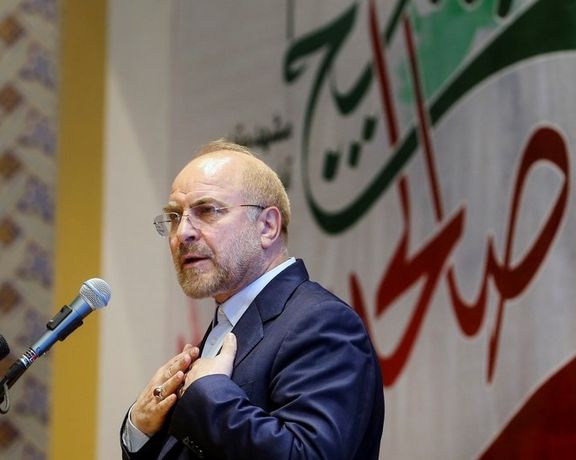Iran Ranks Last Among 150 Countries In Ratio Of Health Economy To GDP

Iran ranks last among the 150 countries in terms of the ratio of health economy volume to GDP, the World Health Institute has revealed.

Iran ranks last among the 150 countries in terms of the ratio of health economy volume to GDP, the World Health Institute has revealed.
According to the latest ranking released by the nonprofit Global Wellness Institute on Tuesday, the Islamic Republic sits at the bottom of the list with the ratio of health economy to GDP of only 1.4 percent.
The report is packed with information on national wellness markets from average wellness spending per capita to the wellness market’s contribution to each nation’s overall economy.
In the per capita expenditures in the health sector, Iran ranked 116th with $142 spent on health by each Iranian in 2020, lower than Equatorial Guinea and Sri Lanka.
The total size of Iran's health economy in 2020 amounted to nearly $12 billion, about 1.4 percent of the total economy that put the country on the 45th place in the world.
The top wellness markets were US, China, and Japan with $1.2 trillion, $683 billion, and $304 billion, respectively, while consumers spent the most on wellness in Switzerland ($4,372), Iceland ($3,728), and US ($3,685).
On top of high inflation rate, prices have risen dramatically in the previous three years. Wage earners have cut back on consumption of basic nutritious food, such as meat, fruits and dairy products.

President Joe Biden's pick for the next CENTCOM commander has admitted that Iran can use sanctions relief to support terrorist activities in the Middle East.
Lieutenant General Michael Kurilla made the remarks during his nomination hearing in the US Senate on Tuesday.
Senator Jim Inhofe, a ranking member of the Senate Armed Services Committee who delivered the opening address at the hearing, told Kurilla that reentering “the failed 2015 nuclear deal” enables the Islamic Republic to “receive substantial sanctions relief… Iran will spend that windfall on terrorist proxies”.
“That means more arms for Hezbollah and Hamas to attack Israel, more training for the Houthis to threaten our Arab friends, and more support for the Iraqi militias that target our personnel”, Inhofe added.
Kurilla replied, “There is a risk that Iran would use some of that money to support its proxies and terrorism in the region”, adding that this put US troops in the Middle East at a greater risk.
Inhofe also expressed concerns that “things will soon get even worse”, noting that “rejoining the Iran nuclear deal won’t prevent Iran from getting nuclear weapons capabilities. The deal’s limitations expire in 2026, which is not too far off.”
Iranian proxies have begun using drones in attacks in Iraq and Syria in recent months, while Yemen's Iran-backed Houthi movement is repeatedly firing drones at Saudi Arabia and UAE.

Iran has unveiled a new precision-guided ballistic missile with a range of 1,450 kilometers (900 miles) amid talks with world powers to revive the nuclear deal.
The solid-fuel missile, dubbed Khaybar Shekan, was unveiled on Wednesday in a ceremony attended by Chief of Staff of Armed Forces Major General, Mohammad Bagheri and Commander of the IRGC’s Aerospace Division, Brigadier General Amir-Ali Hajizadeh as well as a number of other military officials and commanders.
According to the Revolutionary Guard (IRGC), the new missile is capable of striking its designated targets with pinpoint accuracy and has a higher agility than Iran’s other missiles.
Officials claimed the new missile, one of Iran’s third-generation long-range missiles manufactured by the IRGC’s Aerospace Division, uses solid propellants, and is said to be capable of penetrating into missile shields with high maneuverability during its landing stage.
The ballistic missile has a pre-determined trajectory and target, with a guidance system that can adjust course just to ensure it impacts as close as possible to the pre-determined target.
Members of the US House of Representatives asked President Joe Biden last week to focus on Iran’s ballistic-missile capabilities, expressing concerns about attempts to develop an intercontinental ballistic missile which could “potentially put US allies in Europe as well as the US homeland in range.”

Iran’s government has announced 48 industrial and infrastructure projects worth $19 billion to help reduce the impact of sanctions and jump-start the economy.
President Ebrahim Raisi and his top economic officials in a brief announcement on Sunday said that large state companies with foreign currency reserves will start the projects regardless of United States’ sanctions and will expand the petrochemical industry, oil and gas, and build power stations.
Critics immediately questioned the claim by demanding more details about “agreements” the government claimed large companies have signed. The official announcement was not more than a few paragraphs long, without providing a clear breakdown of projects and their related targets and costs.
The government claimed that large steel and energy companies have “foreign currency reserves” that they can use to launch the infrastructure projects, without any need for borrowing. The reserves could be referring revenues from exports that steel and petrochemical companies have, but these funds are not really fungible capital. Revenues from exports enter the government’s foreign currency ‘pot’ that are used to finance essential imports.
Iran has been exporting more crude oil in the past one year and it could be assumed that the government has received some foreign currency for the shipments, although details of oil exports and revenues are tightly held as “state secrets.”
Because of years of sanctions and economic inefficiency, Iran has failed to sufficiently invest in its economy, particularly in maintaining production in its vital oil and gas sectors. Oil minister Javad Owji announced in November that $160 billion is needed to revitalize the industry.
The government claimed that once the projects reach completion, they will produce 52 million tons of products and will have an annual turnover of $20 billion dollars, creating 85,000 jobs. However, some media asked to see what exactly these projects are and a timeline for their progress. They asked if agreements the government says were signed between state companies are binding contracts or just memorandums of understanding.
The announcement could have also been made in anticipation of a successful conclusion to nuclear negotiations with the United States that could free up at least $20 billion in Iran’s frozen funds and lift oil export sanctions. The government might have decided to boost morale in the country with the announcement, as more officials and pundits express serious concerns about the political ramifications of the current economic crisis.
Inflation has been hovering above 40 percent for more than a year and food prices rising by 60 percent in 2021 compared with 2020. Politicians warn that the country is facing the danger of a “social explosion.”
The government’s news agency IRNA wrote on Wednesday that the “big achievement” shows Iran can thrive despite sanctions and officials “are not waiting behind the doors of the Coburg Hotel,” a reference to the venue of the nuclear talks in Vienna.
Hardliners in control of Iran’s government have been often making contradictory remarks regarding the impact of US sanctions. At the same that they say Iran has defeated US ‘maximum pressure’ they also call sanctions “cruel” punishment and blame shortcomings on restrictions imposed by the United States. The contradiction can be seen on daily basis in remarks by officials and in government-controlled media.

The Israeli military, in a rare acknowledgement, said it attacked targets in Syria shortly after an anti-aircraft missile was fired into northern Israel early Wednesday.
Syrian state media said a soldier was killed and five others were wounded in the Israeli attack near the capital Damascus
Israel said the Syrian rocket exploded in the air and was not intercepted by Israeli air defenses, but it activated warning sirens in northern Israel.
There were no reports of injuries or damage there.
In a rare statement acknowledging attacks inside Syria, the Israeli army said it struck Syrian facilities used in targeting Israeli aircraft, including a radar and anti-aircraft batteries.
Syrian official news agency SANA reported that Israel fired surface-to-surface missiles in the vicinity of the capital city Damascus and some of them were brought down by air defenses.
Israel has made hundreds of strikes on targets inside government-controlled parts of Syria mostly since 2017, but its government rarely acknowledges or discusses such operations.
Israel also targets Iranian weapons shipments and depots in Syria, primarily to prevent Hezbollah from expanding its arsenal of missiles and other heavy weapons.
Israel has acknowledged, however, that it is targeting bases of Iran-allied militias, such as Hezbollah, which is fighting on the side of Syrian President Bashar Assad’s forces in the country’s civil strife.

Iran’s parliament speaker says the people who regret the 1979 revolution attribute all the failures in the country to the Islamic Republic.
Mohammad Bagher Ghalibaf made the remarks during a joint meeting with officials from the Revolutionary Guards, the Intelligence Ministry, and the country’s police Monday night.
He said there are some people who had been supporters of the Islamic Revolution; “who spoke and wrote for the revolution” but now regret their decisions and say the revolution has had no success and “attribute all of our failures to the revolution.”
He stressed the necessity for more cooperation among the intelligence community in the country, saying that “monitoring is one of the serious needs of the country in the current situation”.
Ghalibaf added that the parliament has allocated a day of its open sessions to monitoring measures and called for more effective use of monitoring tools.
Politicians on both ends of Iran's political spectrum continue to express concernover the dire state of country’s economy and the risk of a social explosion.
Increasing criticism by regime insiders coincides with the anniversary of the Islamic revolution; a time when officials glorify the 1979 revolution and its "achievements”.
This year's celebrations for the revolution are marrednot just by the pandemic but also the fact that it is much harder than ever to speak of the promises of freedom and prosperity given to masses in 1979.